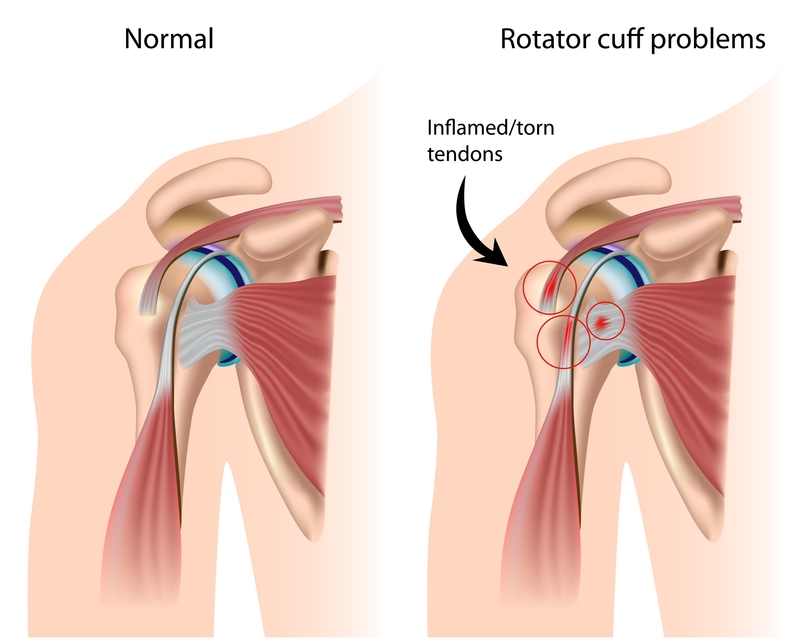What Is a Rotator Cuff Injury?
A Rotator Cuff Injury to your rotator cuff which are a group of muscles in the shoulder. The rotator cuff is 4 muscles that work together as a unit: the Supraspinatus, Subscapularis, Infraspinatus and Teres Minor. These muscles are located on your shoulder blade but their tendons wrap around your shoulder joint. They stabilise the shoulder and help to perform any rotation movement of your arm.
There are three main types of rotator cuff injury:
- Rotator cuff tendonosis – which is repetitive overload on the tendon causing inflammation.
- Impingement syndrome – where one or some of the inflamed tendons gets trapped under a bone or in the shoulder joint.
- Rotator cuff tear – which is partial or complete tearing of one or more of the rotator cuff tendons.
What causes a rotator cuff injury?
Rotator Cuff tendonosis and impingement syndrome are often due to an imbalance between large scapula and shoulder muscles compared to smaller stabilising muscles. This imbalance can cause an overload in one tendon which inflames. The inflammation is tendonosis and if the inflammation occurs in a part of the tendon which is close to the joint or other small bones it can impinge. Rotator cuff tears can occur from sudden force on the shoulder, usually rotation, or repetitive overload on one part of the tendon causing tearing.
What does it feel like?
Rotator cuff injuries feels like a sharp pain deep in the shoulder (impingement or tear). It can also be felt as a deep ache in the shoulder or further down the arm. Most people notice weakness in the shoulder. Some experience pain or weakness only with certain positions or angles of the shoulder (reaching into the back seat of the car).
Diagnosis?
Your physiotherapist can diagnose your shoulder injury from your symptoms, mechanism of injury and also with some simple tests. If your injury is severe we may need to refer you for an X-ray or ultrasound.
How can Back in Action Physiotherapy help?
At Back in Action we will talk to you and listen to how your pain is affecting your everyday activities. We can help regain movement in your neck, back and shoulder with mobilisations, massage, acupuncture and stretching. A progressive strengthening programme is vital for regaining full function in your shoulder so we will create a personalised strengthening programme for you including scapula retraining and shoulder strengthening. Painkillers and Anti-inflammatories can help to relieve some pain and we recommend you see your local Pharmacist or Doctor regarding the best type for you. We can discuss options with you including conservative rehabilitation and/ or surgery. Strengthening your shoulder before surgery is very important to ensure the best post- operative outcome.

